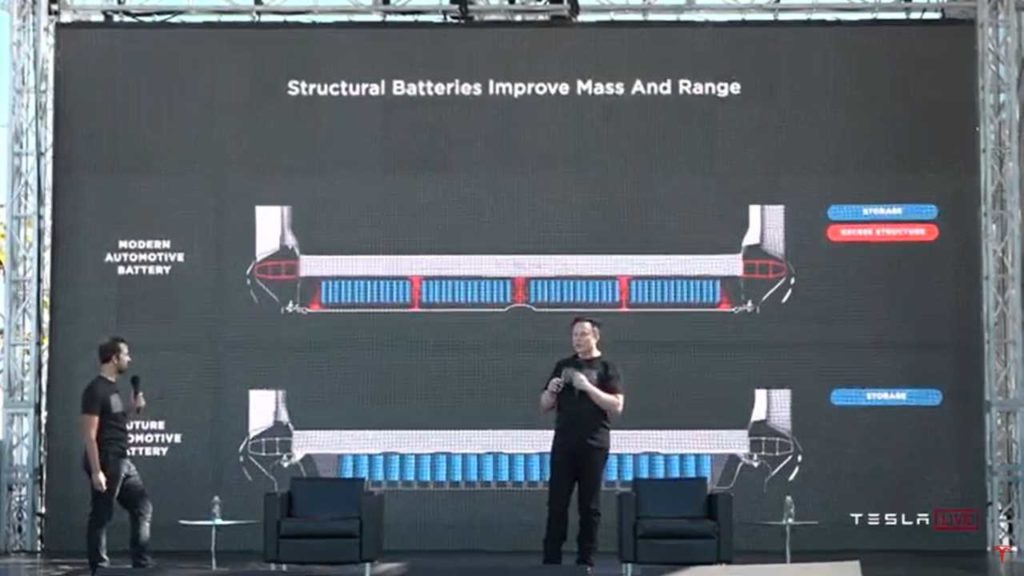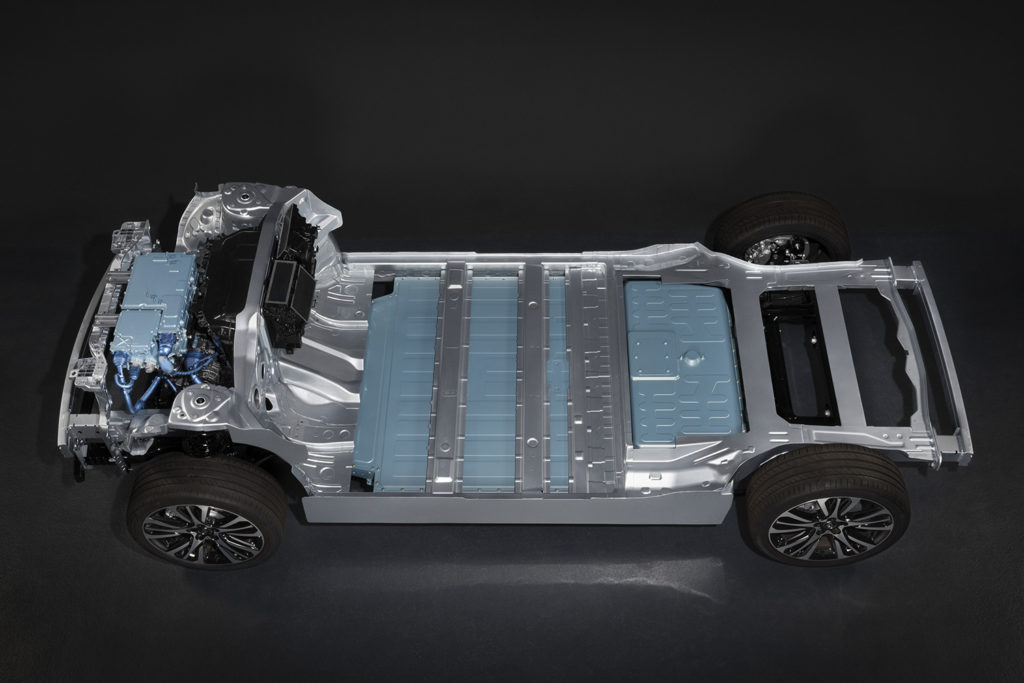During the last “Tesla Battery Day,” Elon Musk confirmed that the company will begin to bet on structural batteries in the short term, integrating the packs into the structure of its vehicles. This movement will go hand in hand with the use of a central frame made from a single large piece of aluminum.
The use of the structure of the vehicle itself as the battery housing will improve the autonomy of your cars by 14%, reduce weight by 10%, significantly simplify production (it is estimated that around 370 fewer parts will be used), and achieve a significant cost reduction, which will result in a lower price and/or a higher profit margin.

The battery pack will be a unitary structure in which the cells themselves will transfer the shear stresses to the upper and lower steel sheets, allowing the elimination of most of the vehicle frame’s central parts and improving torsional stiffness and the moment of inertia.
According to Musk, this structure will be much more rigid than that of any current vehicle (including convertibles, which have more reinforcements), which will improve both the safety and the dynamic behavior of their cars. The one in charge of implementing this solution will be Giga Berlin, Tesla’s new European factory.
However, last week Renault presented by surprise its Megane eVision prototype, which is 95% ahead of the brand’s first electric car based on the CMF-EV modular electric platform Renault-Nissan-Mitsubishi Alliance. One of its main novelties? The use of batteries is integrated into the structure of the vehicle.
The new electric Megane pack will be ultra-thin (only 11 centimeters high), which will allow Renault to create a relatively low body (1.50 meters high) and aerodynamics without compromising habitability. Although the French firm cites the use of a structural battery (“it is an integral part of the structure of the vehicle”), it is not clear if it will be precisely the same solution as Tesla’s.

In any case, the start of production of the Model Y in Giga Berlin is planned for mid-2021 if there are no delays (which, in the case of Tesla, are usually the norm), while the electric Megane will begin to come out of the Douai lines in September of that same year.

